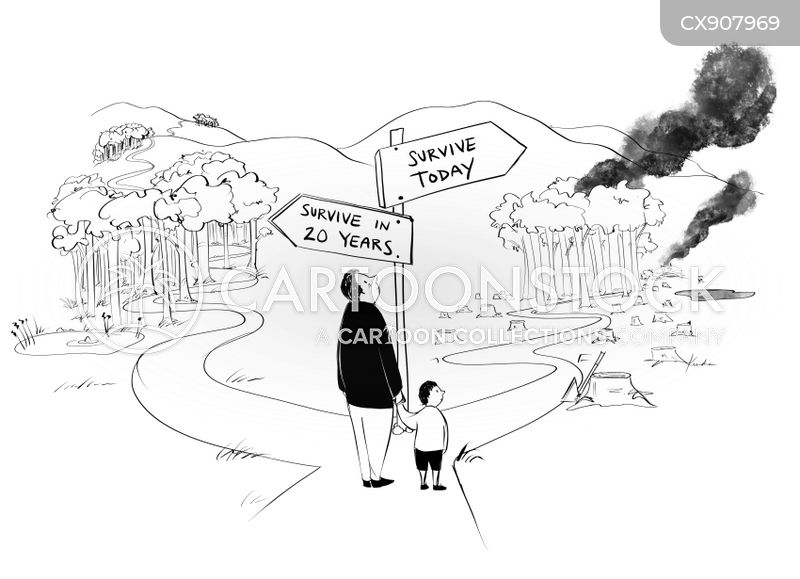
survive-today-tomorrow
I’m the king of the world! — Jack Dawson.
Ivo Welch
December 31, 2021

survive-today-tomorrow
Basis of all international negotiations.
Key Question: Good Tax on tCO2.
Higher tax → lower emissions.
What is the optimal path over time?
too fast → economy RIP;
too slow → too much warming.
Nobel Prize (appropriately so) for Nordhaus (DICE). However, I will later explain why these models are practically not very useful.
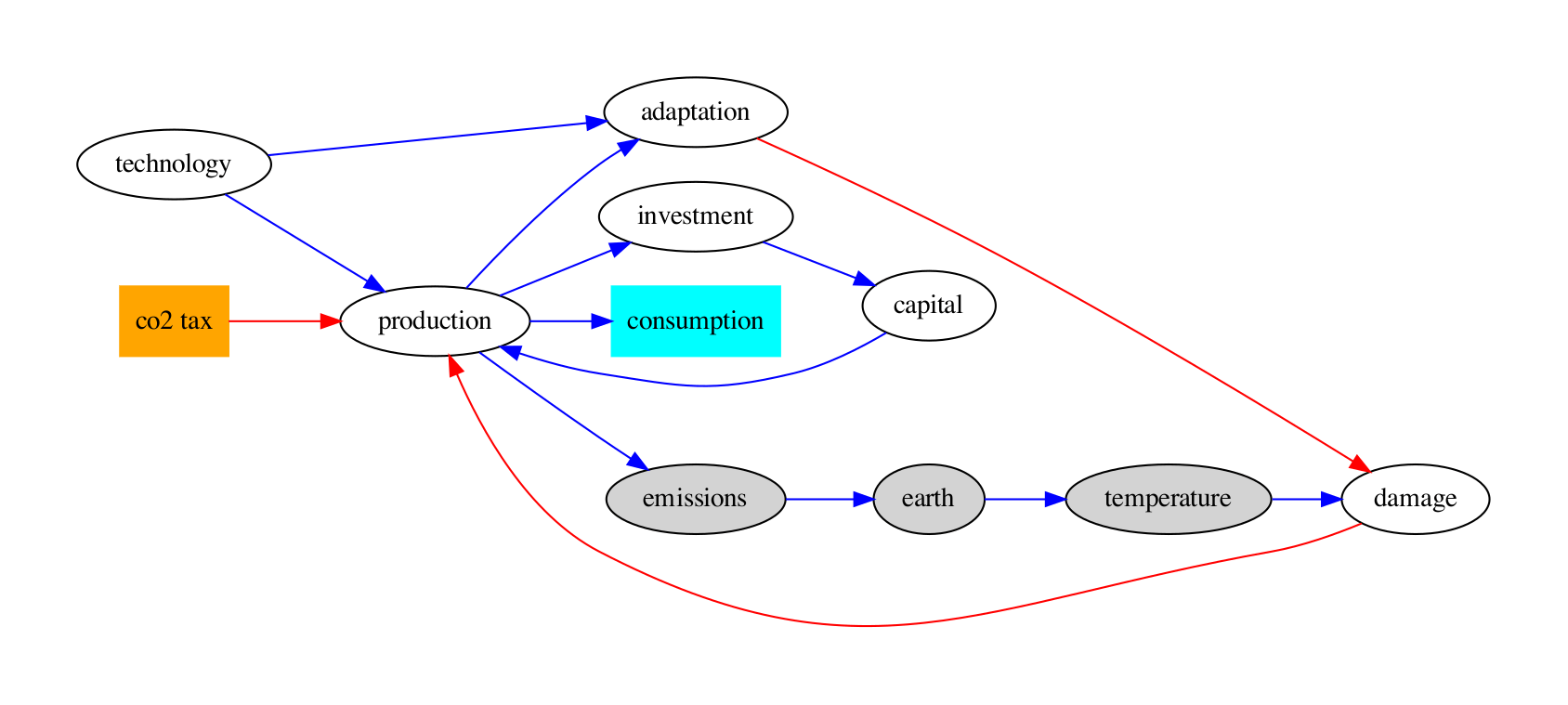
DICE is simpler than many other models.
DICE is one big world model.
One benevolent policy maker optimizes tax, for all of us, both now and in the future.
over about 200 years; by then,
most fossil fuels will be exhausted.
Policy Inputs:
Tax rates on CO2 for each of 200 years;
no other taxes (e.g., on children).
Model Outputs:
Sum consumption (incl. environmental!?);
Incidental: Temp, CO2, etc.
Modeler’s Goal:
Of course not!
But better than all alternatives,
Unreliable (and difficult):
more speculative even than macro models;
way longer out in time (100-200 years);
with improving sciences and uncertainties;
even Nordhaus himself has only mild intuition.
Models need some subjective inputs, too.
Don’t take the models too seriously!
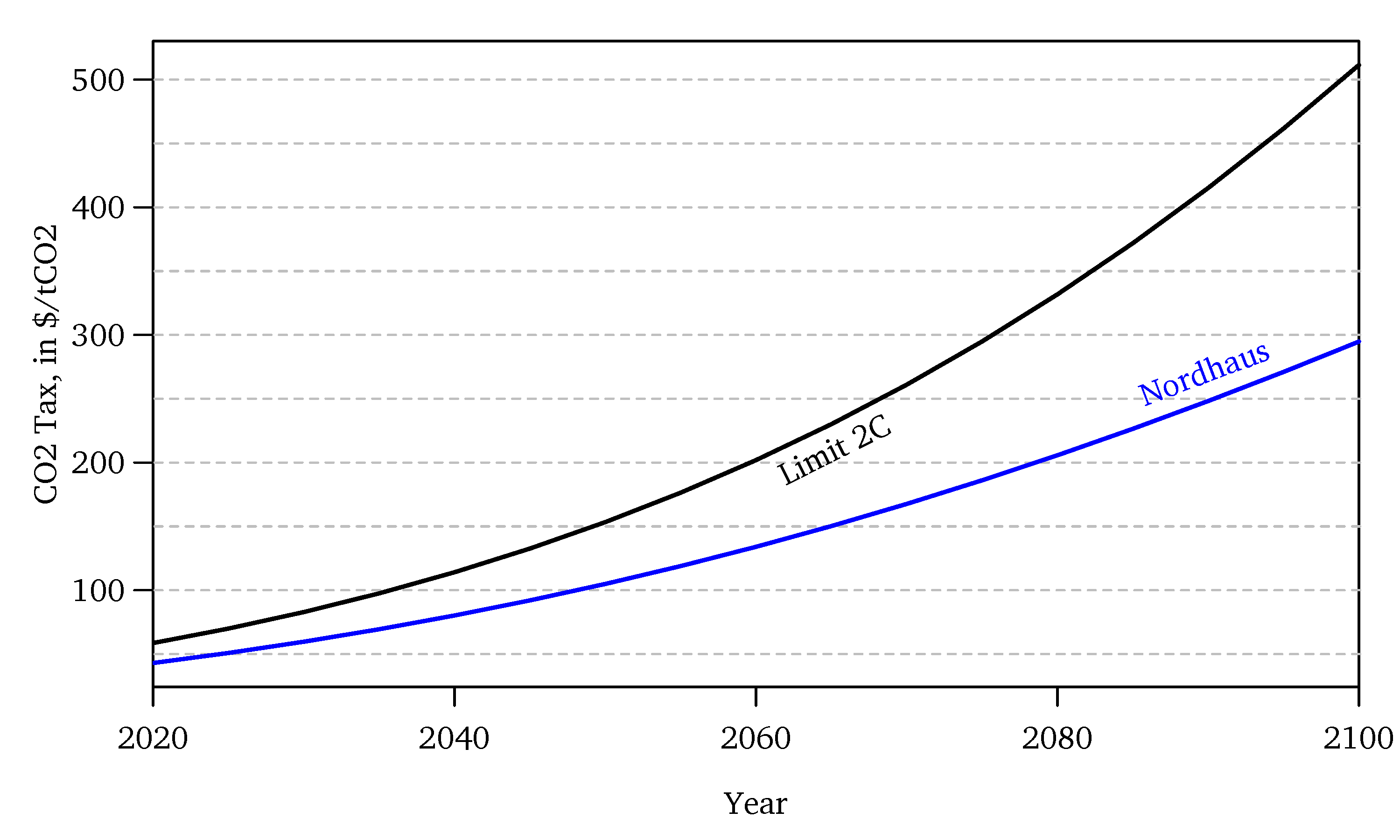
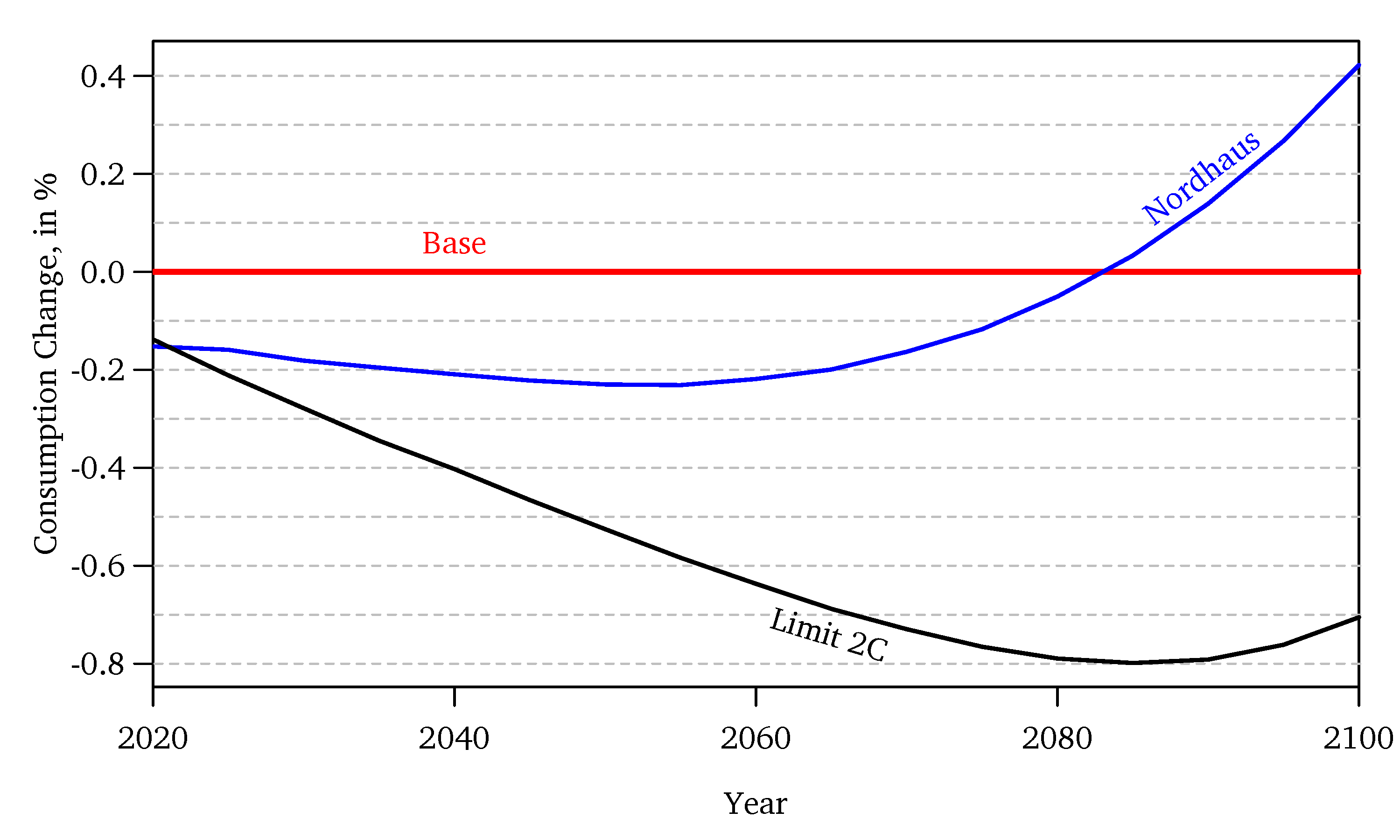
This graph is largely based on the expected scenario.
Optimal means optimal,
even if the change is modest.
But understand the relative effects!
Even the best curbing will gain only a little consumption / benefit:
Limit to 2°C may be too aggressive — $$.
Limit to 1.5°C would be crazy — $$$$.
Yes, it’s optimal to curb CO2 via a tax:
Bad for us/kids, good for the grandkids.
The world will not end w/o intervention.
Good intervention should not attempt to stop global warming:
Curbing 2°C ≠ curbing 0.5°C .
Optimal choices are about 0.5°C more or less.
Going for stopping warming would be crazy.
Fact: The world will warm greatly!
No matter what we can reasonably do.
Prescriptive: Don’t bother with > 0.5°C.
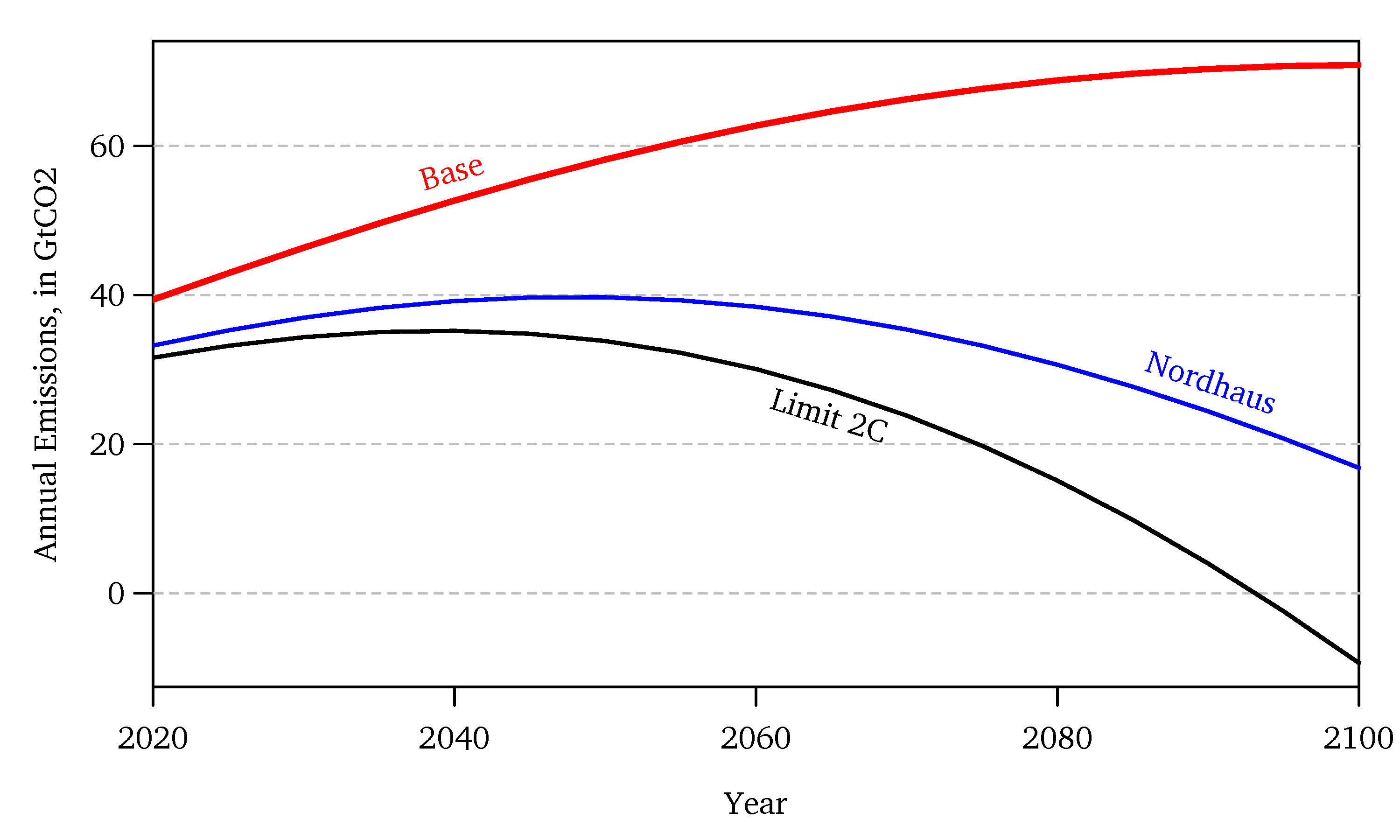

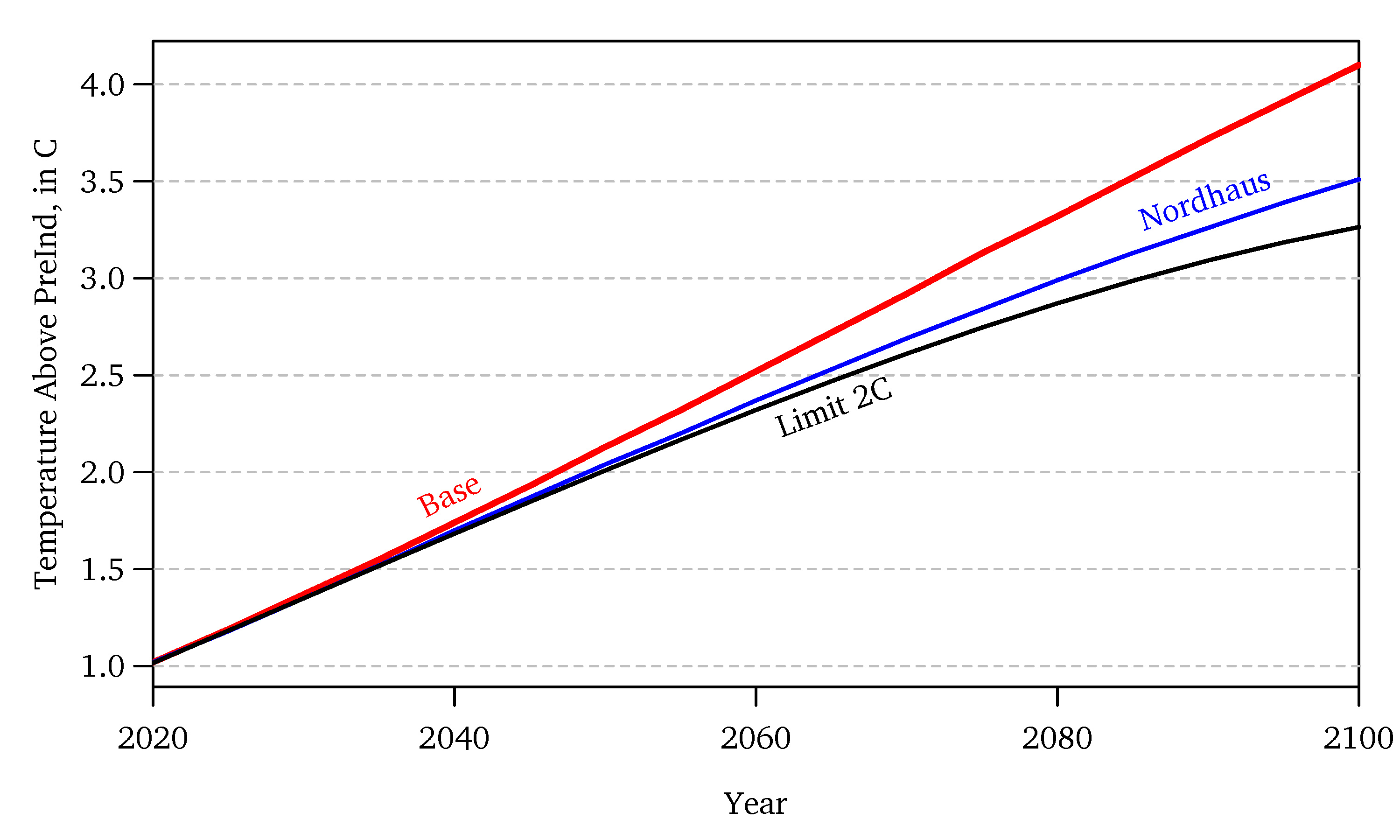
Deaths and misery will not be as bad as you think.
Except in very unlikely but not entirely impossible scenarios.
Life did not evolve on a risk-free planet.
Innovation will solve many problems.
See next graph:
Blue = Climate
Black = Earthquakes etc.
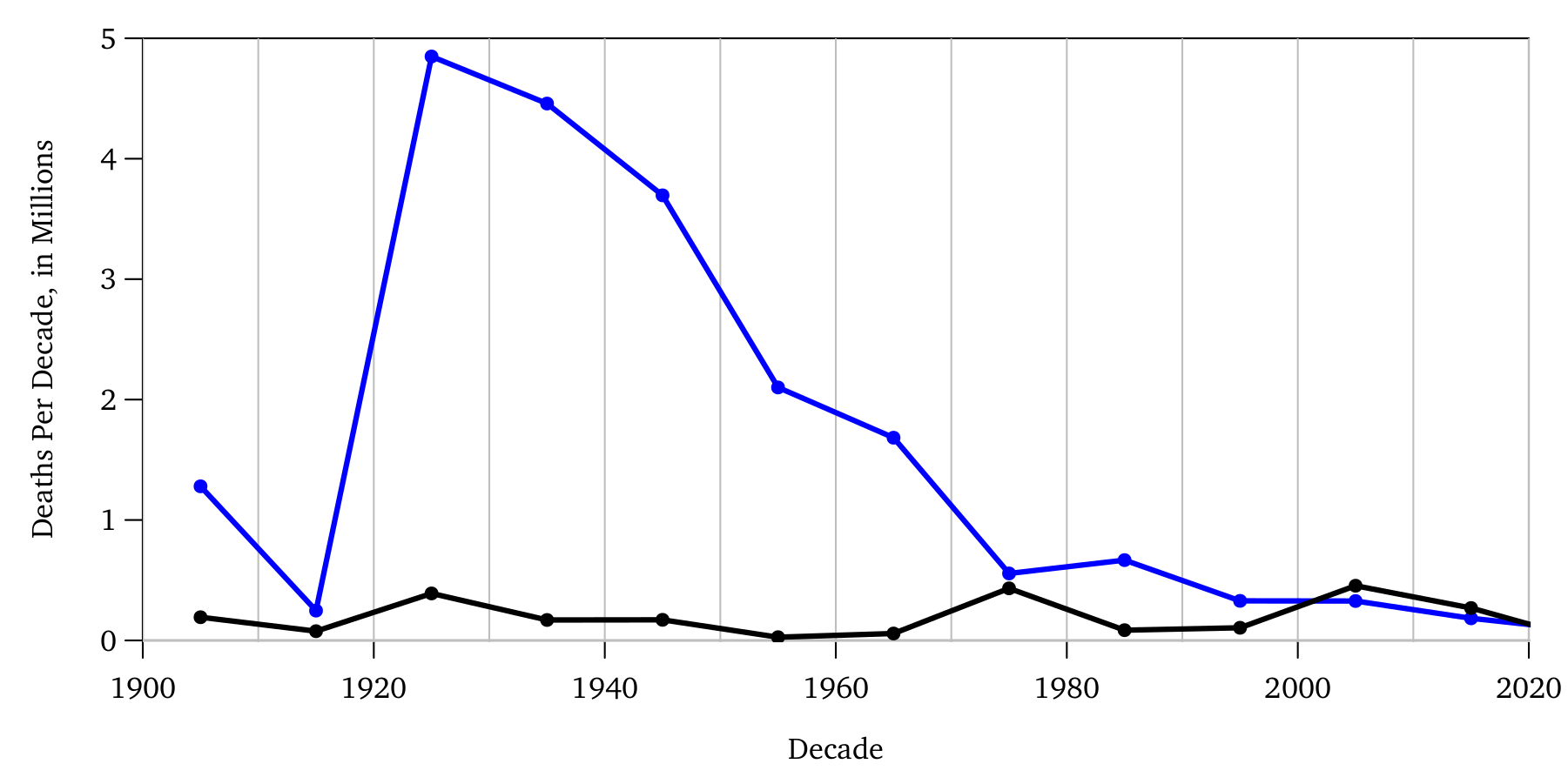
Trump: $5 /tCO2 .
Biden: $50 /tCO2 .
IAWG (US): $50 /tCO2 .
Nordhaus: $50 /tCO2 .
Stern: $80 /tCO2 .
Range: –$15 to $2,500 /tCO2 .
All increasing over time. All effectively phase out CO2 completely in ≈ 50 years.
$50/tCO2 means about:
50% increase in gasoline price (like Europe);
2-5 times increase in coal;
2 times increase in gas;
Trees: subsidize by $5-10 each!
Nordhaus $50/tCO2 .
Stern $80/tCO2 .
Why?
Different assessments of science?
Different assessments of inputs?
Different assessment of objective?
Biggest Disagreement:
Quasi-Philosophical:
What is $1 today worth in the future?
5% → ≈ $30/tCO2 optimal tax now.
1% → ≈ $500/tCO2 optimal tax now.
Stern’s d.r. was lower than Nordhaus’ d.r.:
More acrimonious in the past,
but converged over time.
Useful to have both views.
Good scientific disagreement.
Economists’ efficiency consensus:
3-5% is more reasonable than 1-2%.
Nordhaus higher d.r. was more reasonable on economic grounds,
but Stern’s higher tax estimate wins back points when CC uncertainty is added.
But what is ethical?
Are we not stewards of Earth for the future?
Do ethicists pick Stern’s higher estimate?
Do we owe the future a better economy or a healthier ecology?
Would you prefer having been born
into the middle ages with a “healthy planet,”
or into today’s “unhealthy planet,” based on industrial growth and pollution?
Steward for whom?
Six generations into the future, people will be ≈ 30 times wealthier than us.
How many $$$ should today’s humanity forego so that future humanity is full 30 (not only 20) times wealthier than us?
Don’t overthink it.
Humanity is not that logical and deliberate to contemplate such questions.
How much to great-great-grand-children?
Interesting but largely irrelevant.
Our generation today makes decisions.
Future generations don’t vote!
… whether you like it or not
💊
Won’t the poor suffer the brunt of CC?
Yes, they will.
Draughts, flooding, hurricanes, etc.
We rich should/could help them by making them richer and adapt,
but probably won’t…it is what it is: 💊.
We wish poor people mattered more,
Is it the ethical choice to fight CC?
If you care for ‘others’:
Why send to future generations?
Instead why not send to the poor today?
Are not both ‘other people’ on whose behalf we rich people today should be stewards?
They don’t get to vote much, either.
If humanity were more humane, what should it spend $$$s on?
0.1°C less warming in 60 years?
Or poverty and misery today:
e.g., wipe out Malaria instead?
e.g., feed all poor children instead?
Read Lomborg’s Copenhagen consensus. You need not agree, but you need to contemplate the tradeoffs.
Just because a view is cynical does not make it wrong.
Is each an excuse not to spend on other?
Though not that deliberate, anyway.
I wish less fortunate mattered more 💊
You are so blessed. Recognize it!
Help poorer others when you can.
All of us in Western universities are hugely privileged.
Read Peter Singer.
Don’t trust models too much!
$50/tCO2 is based on expected path.
What if Earth will suffer worse?
What if Permafrost melts catastrophically?
What if the Indian monsoon stops?
Humanity should be very worried about uncertainty, not just expectation.
The Economist: World GDP: $250 vs. $258 trillion w/o climate impact. then subtract off cost.
More interesting information: The Economic Costs of Climate Change
IAMs are sketch models.
They are not reliable, and
useful for orders of magnitudes only.
Newer IAMs better about uncertainty.
$50/tCO2 tax immediately would be great,
Expected net benefits are ‘modest’.
Instead, the world has a crazy negative CO2 tax today!